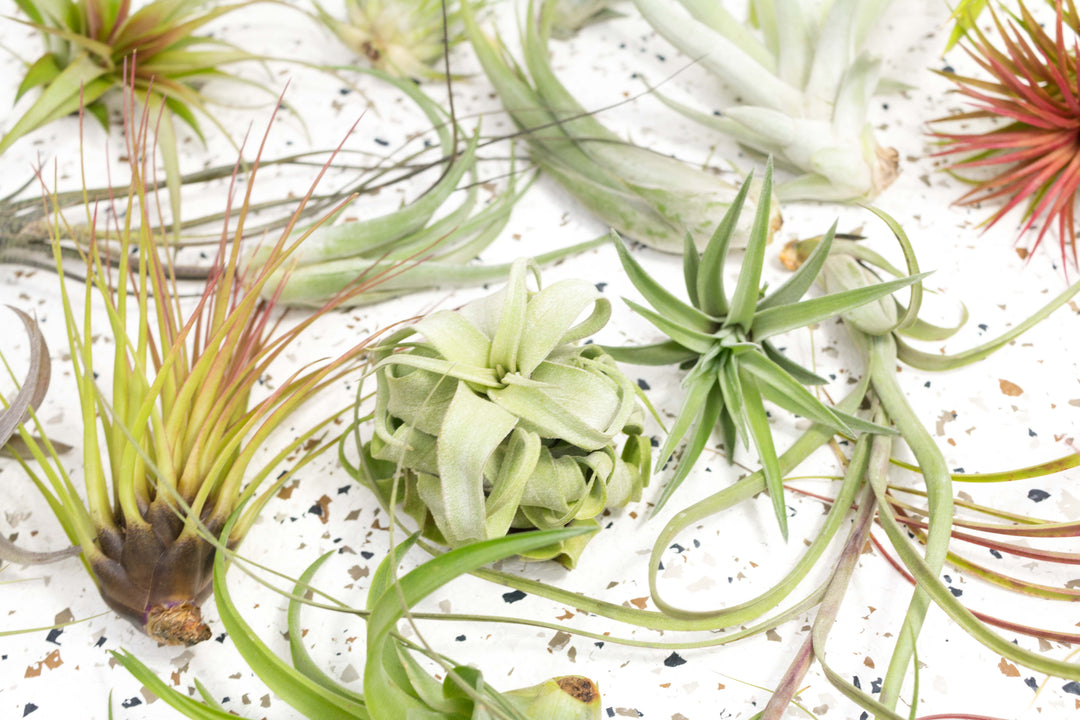
What on Earth are Tillandsias?
What on Earth are Tillandsias?
Discover the fascinating world of Tillandsias (The Scientific Name for Air Plants)
So, what the heck is a Tillandsia? Whilst it might sound like a mythical creature, or something contagious you’d rather not catch, a Tillandsia is simply the scientific name of what’s more commonly known as an air plant. Air plants are found across natural environments, as well as in the gardens, patios and outdoor areas of a growing number of homes.
Where Does the Name Come From?
Named after Dr. Elias Tillandz, a Swedish pioneer in all thing’s botany, Tillandsia are famed for their incredible ability to grow without soil. They’re also somewhat of a collector’s item for enthusiasts and plant nerds all across the world.
As well as growing without the need for soil, it is the Tillandsia’s renowned ability to adapt to changing environments that has drawn both seasoned plant collectors and everyday folks to marvel at its unique quality.
Which Plant Family Do They Originate From?
Originating from the Bromeliad family, there’s a whopping 540 species of this awesome plant. And did you know that the world’s coolest fruit, the pineapple, is a member of the bromeliad family? It should be pointed out though, that the plants you have at home aren’t likely to be as sweet and delicious. Besides, we think they are far too beautiful to eat!
Over the years there’s been around 200-odd hybrids of Tillandsia that flora-aficionados have created. And there’s no doubt that in the years ahead, there’s sure to be a handful more variations of Tillandsia that crop up.
Where Are They Naturally Found?
These resilient plants can be found growing and thriving in an array of climates across the Americas. They have evolved to grow in the deepest jungles of the Amazon, the mountainous formations of the Rocky’s and even in the barren expanse of Central American deserts.
Tillandsia Characteristics
A plant’s characteristics – notably its shape and size – is largely determined by the climate in which it has grown. In a forest-type environment that is prone to significant rainfall, plants have evolved with thinner leaves. In contrast, plants that have originated in extremely dry environments have thicker, curled leaves that better contain water and are less prone to dehydration. These leaves also contain tiny white hairs called trichomes that protect the plant from sun damage. How cool is that!
How Do They Grow Without Soil?
No doubt you’ve found yourself wondering, why aren’t these things planted in the ground? After all, other plants seem to grow perfectly well in soil.
The fact is, Tillandsia have remarkably evolved to utilize their leaves, rather than their roots, to store moisture and nutrients. The leaves have adapted to draw in moisture from the air and to trap in water that’s used during periods of low rainfall.
In their natural environments - high above the earth below - these plants are protected from flooding, soil erosion and pesky little animals that might try and gobble them up.
The Tillandsia’s ability to thrive in just about all conditions, without the need for soil, makes them a great gift idea and a perfect plant to complement your home. But we think there’s one reason above all else that makes Tillandsia such an awesome plant. They simply look amazing!
Why don’t you see for yourself how a Tillandsia can spruce up the look of your garden or home TODAY.




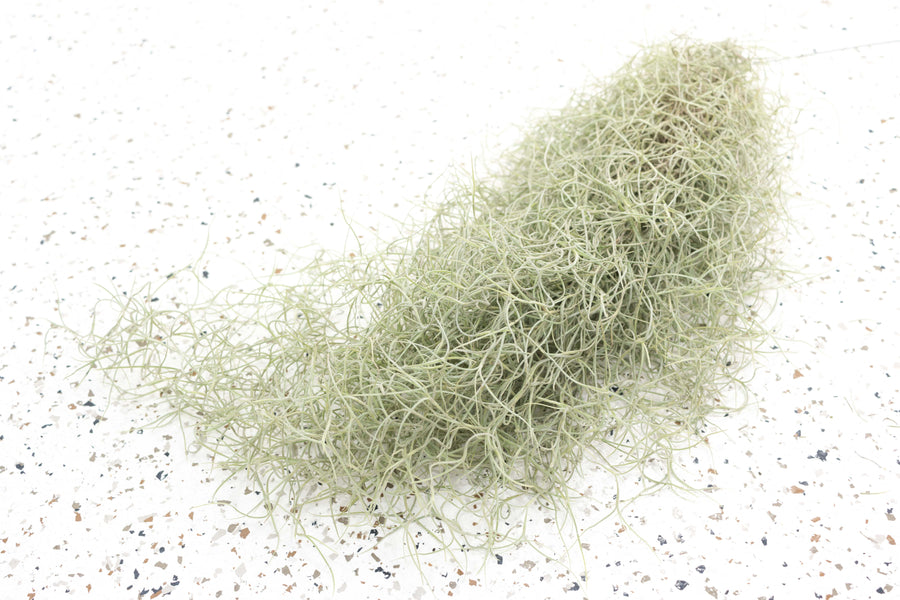
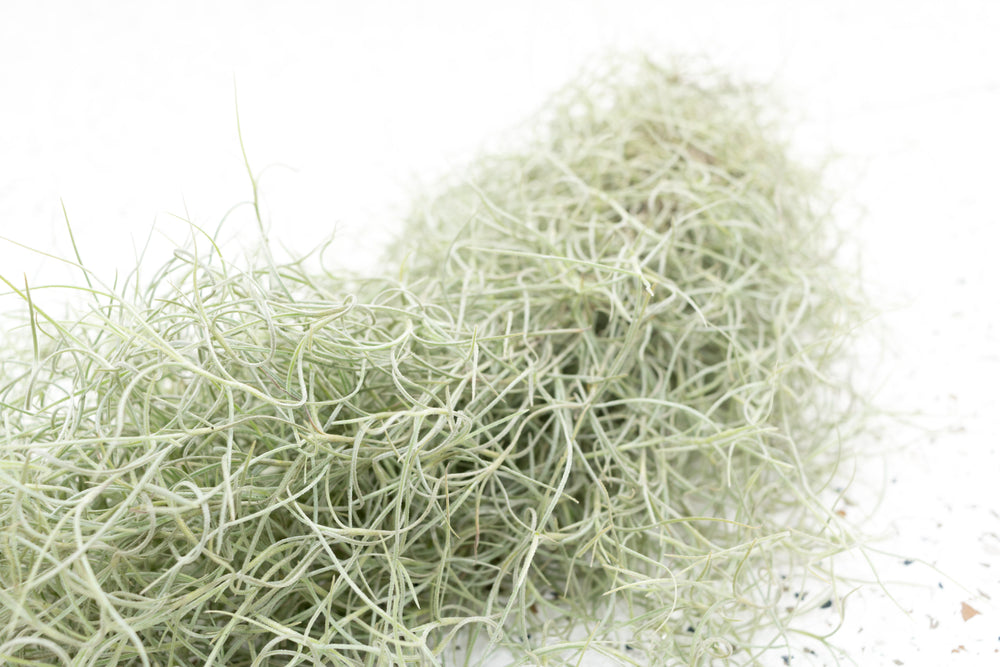


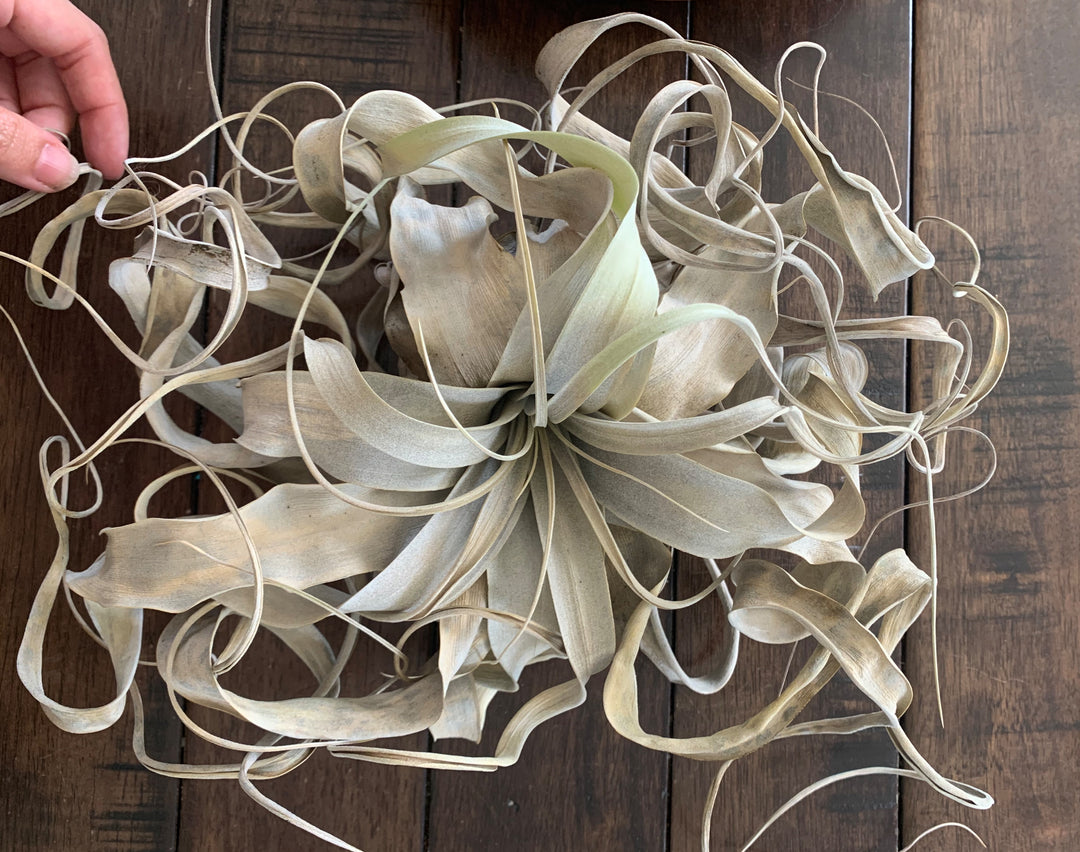
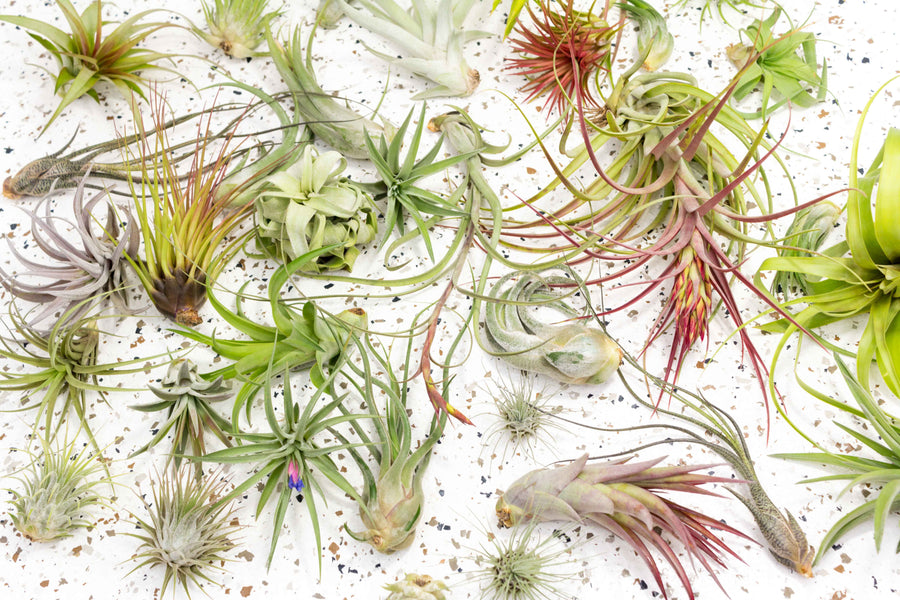
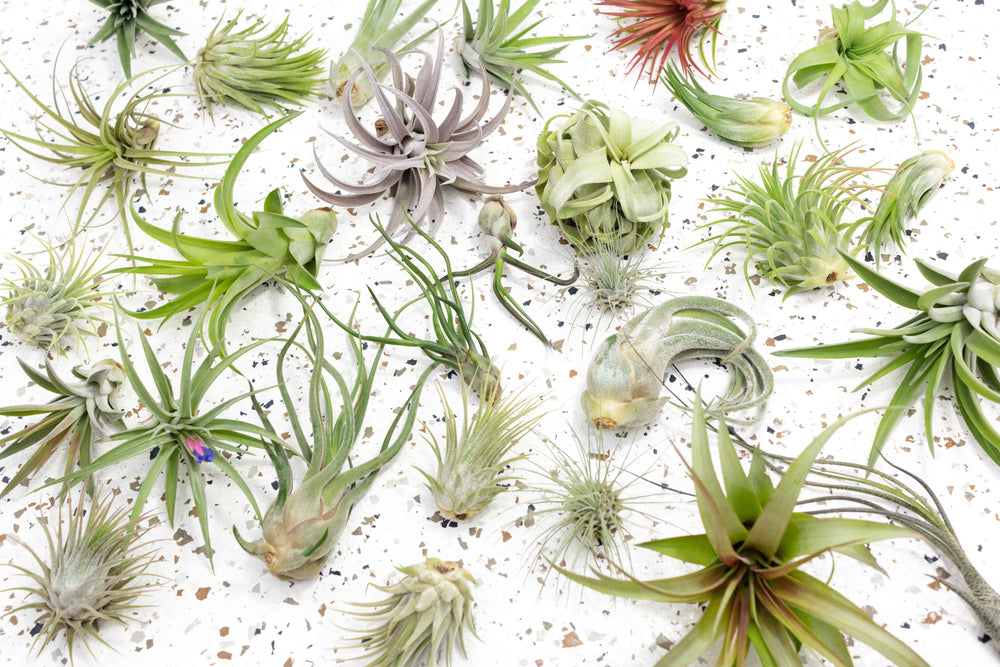
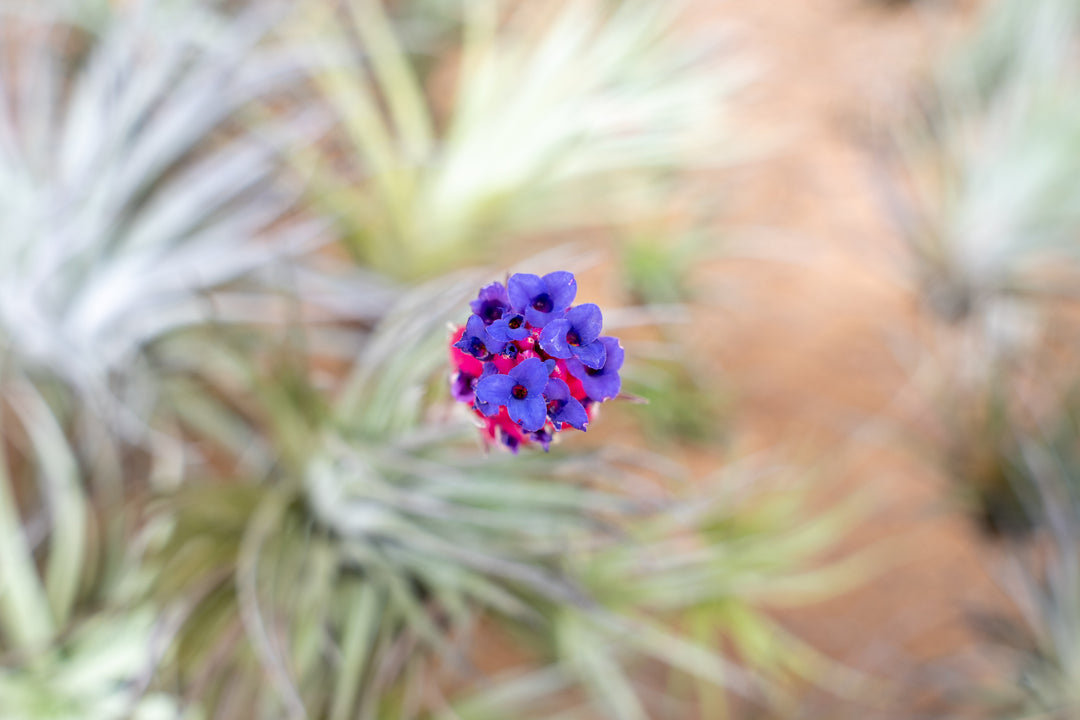
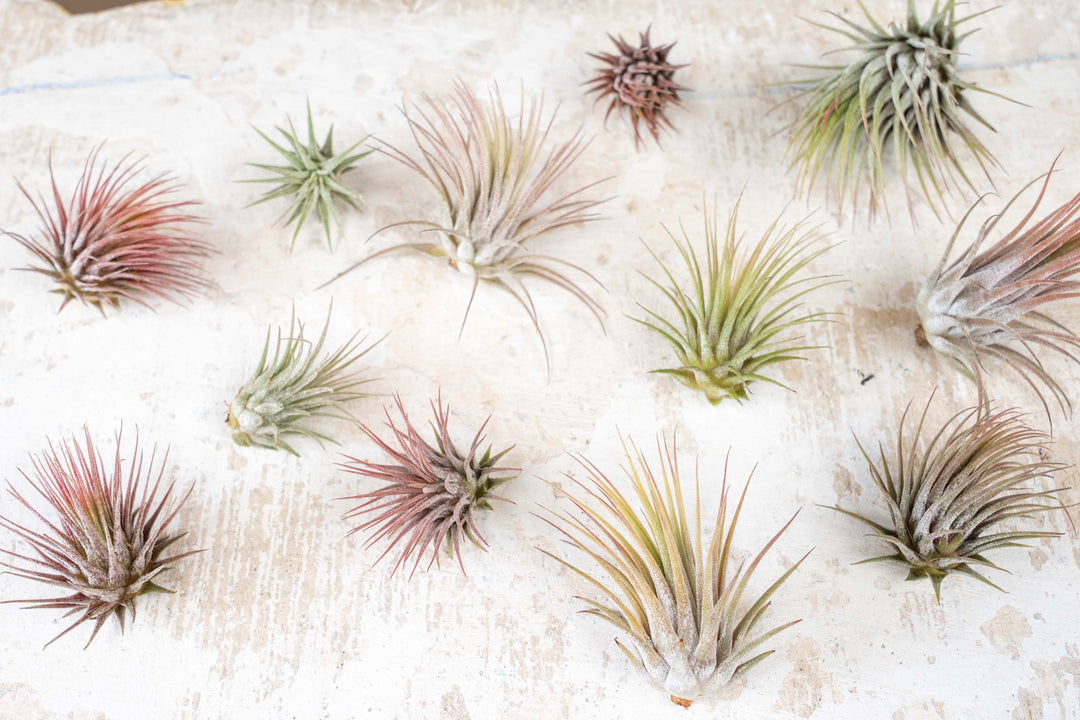
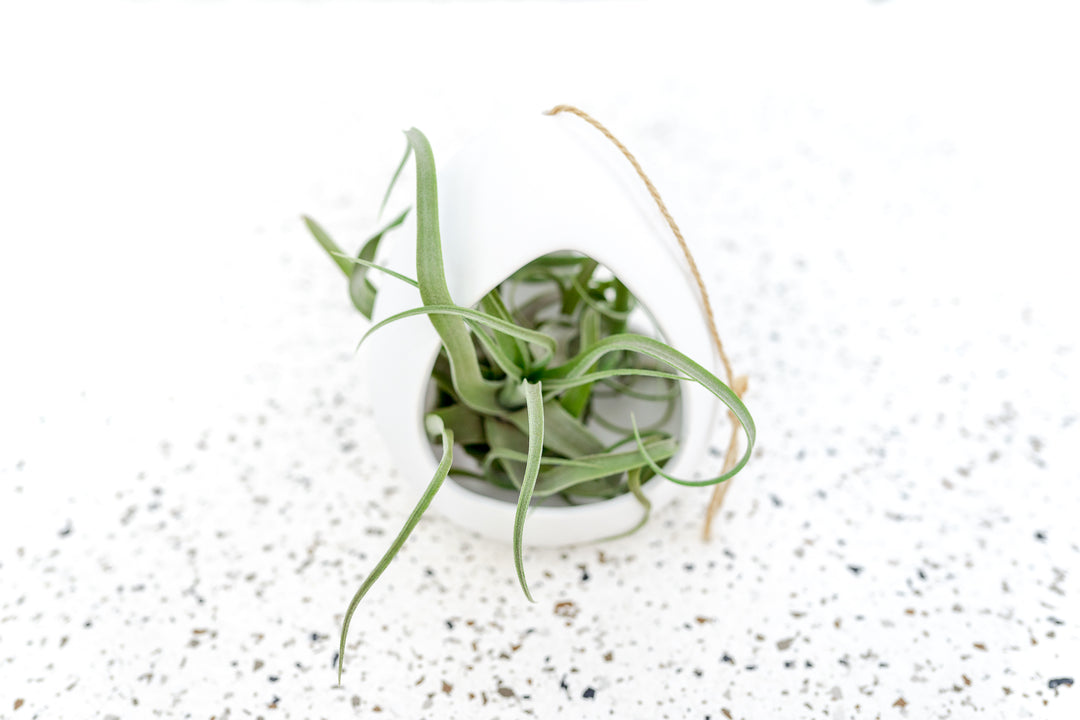
I ordered the stay at home terrarium kit for my Lovely Fiancé’ Hanna. She loves to do little projects and she loves air plants so I can’t wait until she receives her gift! She has never seen a flowering “Medusa” before and I know that she will absolutely love it! Thanks very much for providing such a wonderful service. I will be ordering many more. May God bless you and keep you safe…
Leave a comment